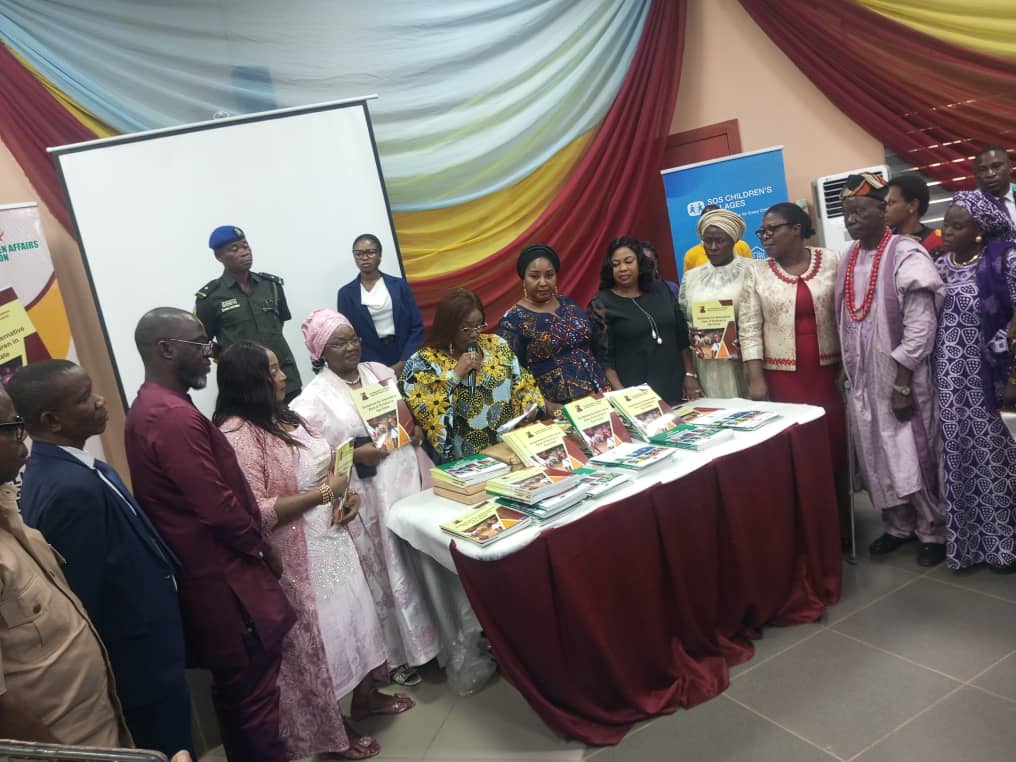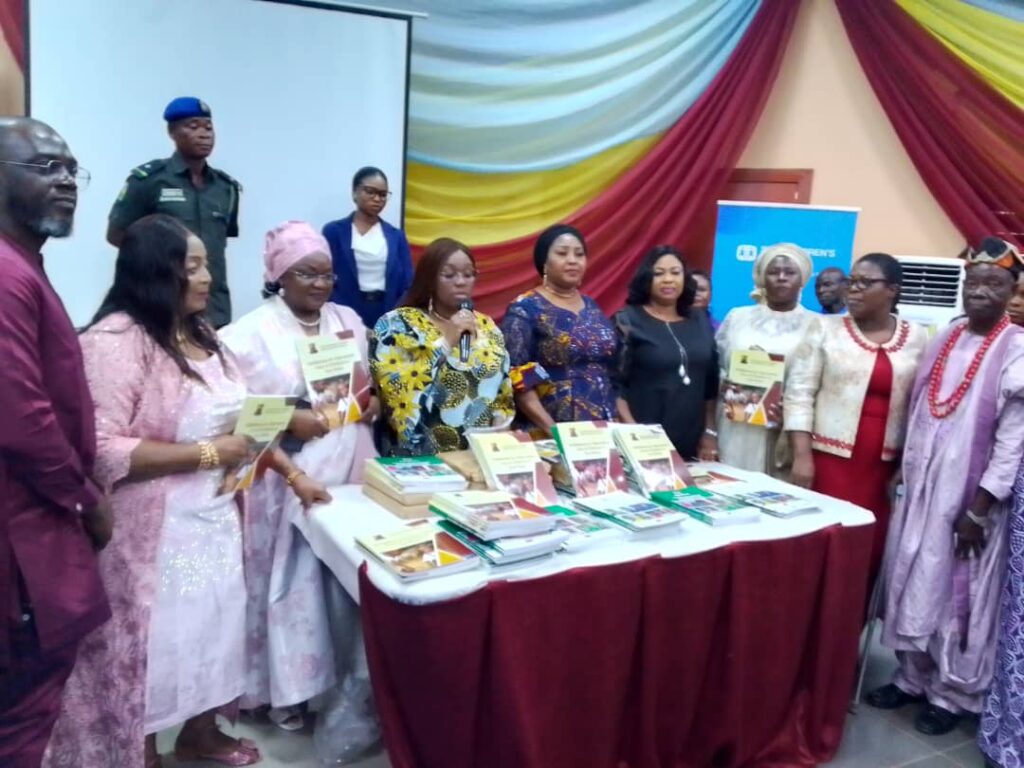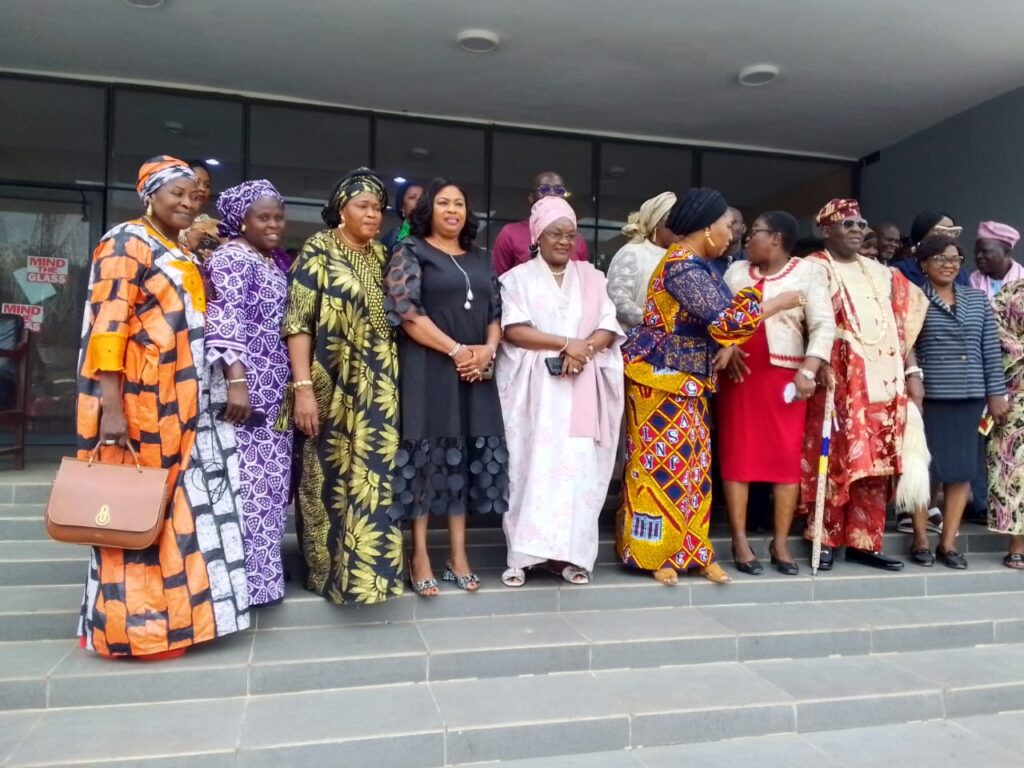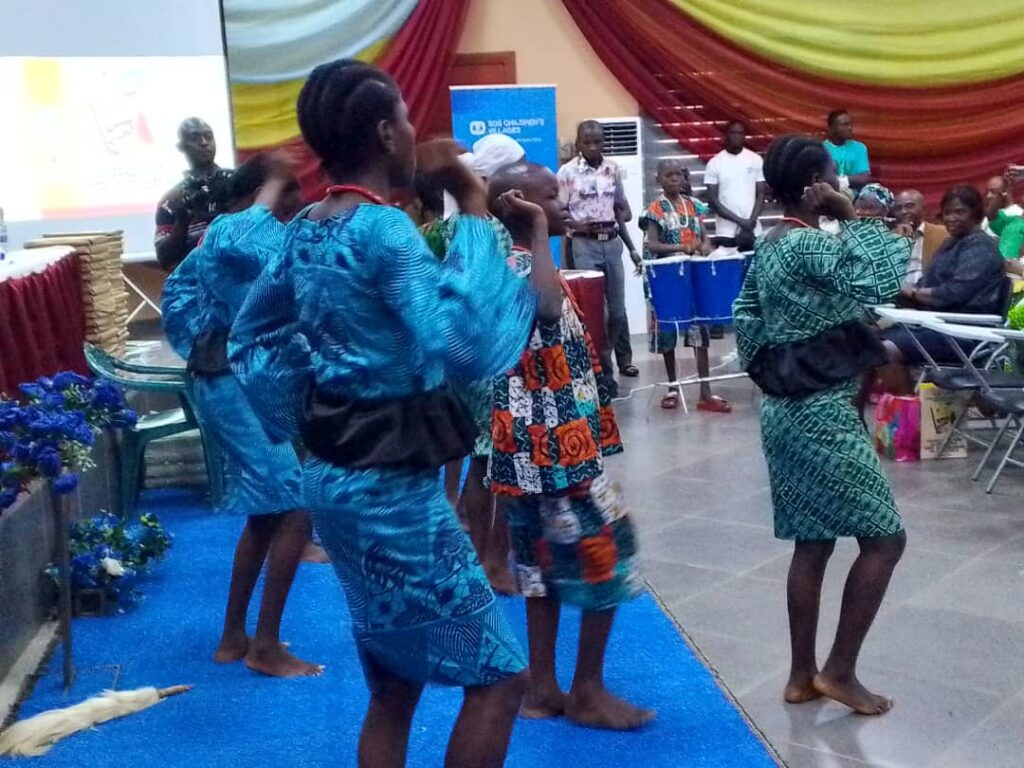
The SOS Children’s Villages has partnered with the Oyo State Government to develop the guidelines for alternative care of children in Oyo State, aimed at preventing abuse in orphanage homes and institutions caring for vulnerable children in the state.
The guidelines developed in collaboration with the Ministry of Women Affairs and Social Inclusion was launched on Wednesday at the Local Government Training Center ,Secretariat, Agodi ,Ibadan.
The event had in attendance relevant stakeholders and eminent personalities including the Speaker, Oyo State House of Assembly, Right Honourable Adebo Ogundoyin,represented by the Chairman , House Committee on Women Affairs and Community Development, Hon. Dr. Olufunke Comfort Olajide; a former Speaker of the Oyo State House of Assembly, Hon. Monsurat Sunmonu; UNICEF representative, Mr. Dennis Onaiza; the Aseyin of Iseyin, Oba Sefiu Olawale and the Eleruwa of Eruwa, Oba Samuel Adebayo Adegbola , represented by Chief Evang. Ayokunle.
Others are Mrs. Saka Balogun and Mrs. Bolajoko Doherty, representative of PDP and APC women leaders in the state.


While Speaking on the guidelines,the representative of the National Director of SOS Children’s Villages Nigeria, Ayodeji Adelopo, emphasized the importance of adhering to the principles of necessity and suitability in placing children in alternative care.
He said further that every effort must be made by parents to keep children within their families.
Adelopo also expressed deep appreciation to the Oyo State Government, particularly the Ministry of Women Affairs and Social Inclusion, for their commitment and leadership in making the programme a reality.
“This is not just an unveiling of a policy document, it is compassion and conviction, that every child in Oyo State deserves to grow up in a safe, loving, and supportive family environment.
“On behalf of SOS Children’s Villages Nigeria, I warmly congratulate the Oyo State Government, particularly the Ministry of Women Affairs and Social Development, for demonstrating visionary leadership in developing these guidelines.
” It has been our privilege to support this process and help shape a document that reflects the real needs, values, and aspirations of Oyo’s communities.
“We know from global evidence that when children are placed in nurturing, family-based alternative care, the benefits are profound: improved physical and emotional wellbeing, stronger educational outcomes, and reduced risk of abuse or institutional harm.
“These guidelines, rooted in internationally and nationally recognized principles of necessity, appropriateness, and the best interests of the child, will help families stay together whenever possible, and provide safe, tailored care when that is not feasible.
“In Oyo State, SOS Children’s Villages Nigeria has long demonstrated the impact of community-driven care. We have helped vulnerable families access education and healthcare, empowered caregivers through livelihoods support, and strengthened systems like the Child Protection Network to address abuse, neglect, and family conflict, and promote safe reintegration.
“As we move forward, may these guidelines become a beacon of hope and a catalyst for change ,leading us toward a future where every child in Oyo State grows up with love, dignity, and protection. Let us commit to operationalize these guidelines fully and urgently.
Speaking at the event , the First Lady of Oyo State, Her Excellency, Engr. (Mrs.) Tamunominini Makinde expressed deep concern about the plight of children with special needs, especially those who are unable to speak or defend themselves.
Engr. (Mrs.) Makinde applauded the Oyo State House of Assembly, the Commissioner for Women Affairs, SOS Children’s Village, and the entire team who worked tirelessly to make the guidelines production a reality. “The commissioner has not slept well for the past two months,” she revealed. “I know she’ll be happy now, because she has always pushed lawmakers in the state to adopt this book and ensure the essence of it is not lost.”
The First Lady also praised Governor Seyi Makinde for approving the necessary funding that made the launch possible. “I appreciate my husband for approving the budget to ensure that this book is launched under his administration,” she said.
She highlighted the urgent need for the guidelines, citing disturbing reports from some care homes. “We found out that some homes have six, seven children who are being perpetually abused,” she lamented. “That is why the Oyo State Government is standing behind these guidelines and laws—to ensure our children and young adults who cannot speak for themselves are protected.”
“We must put these strategies in place so that our children are not sexually, emotionally, or physically abused.”

She further hinted that similar frameworks may soon be adopted at the federal level, noting that ongoing discussions are in place to ensure that all Nigerian children in alternative care settings are safe. “These guidelines will stand as a guide between the government and the caregivers,” she affirmed. “Oyo State is setting the standard, and I’m proud to be part of this transformational moment.
In her remarks, the Oyo State Commissioner for Women Affairs and Social Inclusion,
Hon. (Mrs.) Toyin Balogun described the event as a historic milestone and a pivotal step towards safeguarding the future of vulnerable children.
She explained that successful implementation of the guidelines requires continuous commitment, collaboration, and investment from Government agencies, non governmental actors, families, and communities.
She reaffirmed the Ministry’s dedication to social inclusion, she urged all stakeholders to ensure the guidelines are implemented in a safe, regulated, and child-focused manner, adding, “No child should fall through the cracks because of systemic gaps or societal neglect.”
” Today marks a pivotal step in our collective journey towards securing the future of vulnerable children in our state who, for one reason or another, are unable to remain with their biological families and require quality care, protection, and love.”
“With the growing number of children requiring alternative care due to parental loss, abuse, neglect, or other family crises, the need for clear, legally sound, and ethically guided procedures for placing these children into alternative care arrangements has become more urgent than ever.
“The Guidelines we are launching today are built on the principles of child-centered care, family-based solutions, and community involvement, in alignment with both national legislation and global best practices.”



